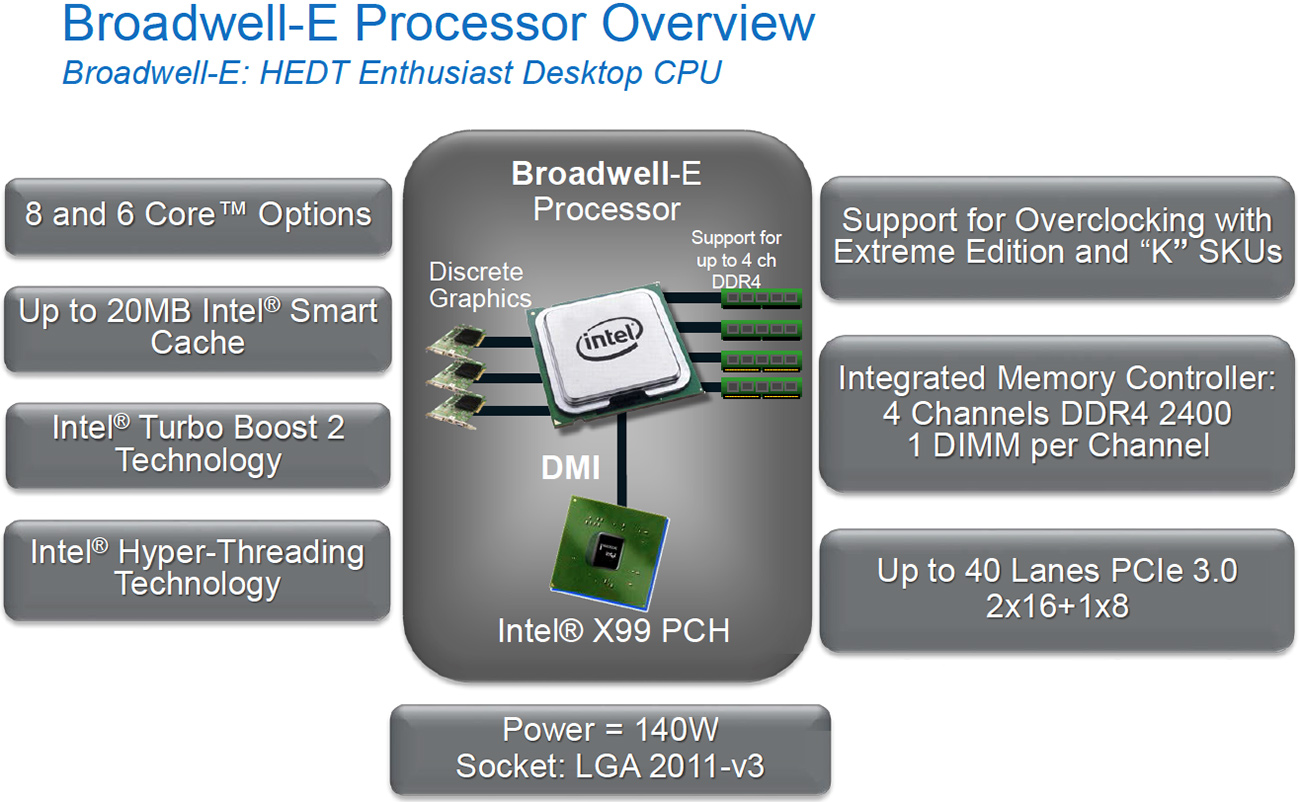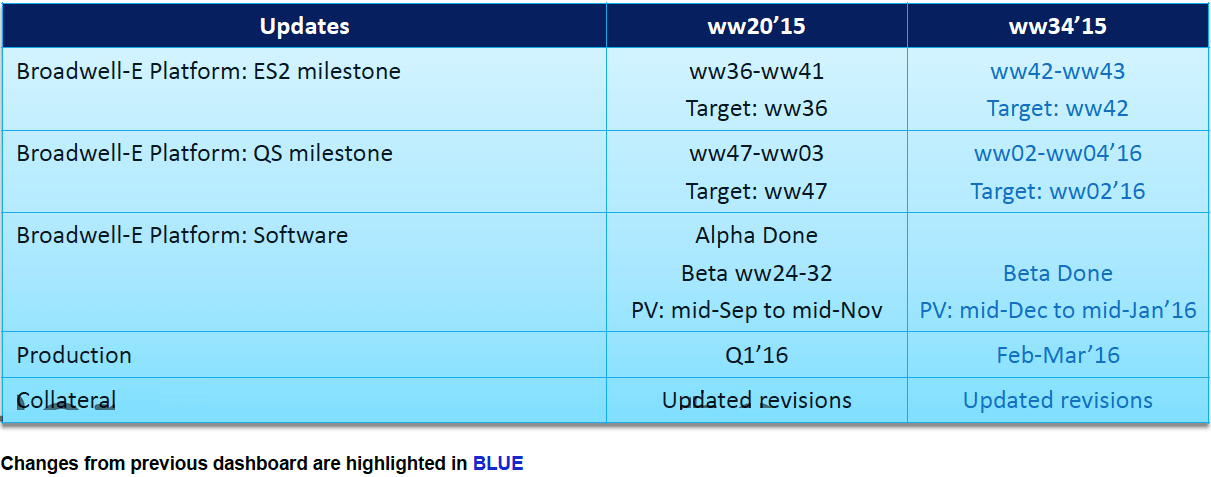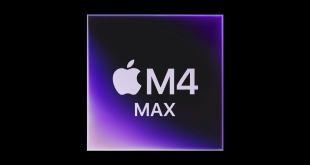Intel Corp. has decided to postpone release of its next-generation high-end desktop microprocessors code-named “Broadwell-E”, based on a media report. The new central processing units will be formally introduced in February or March, 2016, not in January, as expected before.
According to excerpts from an Intel’s document published by BenchLife, Intel will start mass production of its Core i7 “Broadwell-E” processors in February or March, 2016. It is highly likely that Intel will formally introduce its new enthusiast-class chips at CeBIT trade-show in March. Based on the documents, Intel recently reconsidered release schedule of the new CPUs.
Intel’s Core i7 Extreme “Broadwell-E” microprocessors will have six or eight cores with Hyper-Threading technology, quad-channel DDR4 memory controller (which will gain support for 2400MHz DDR4 SDRAM), 20MB last level cache, up to 40 PCI Express 3.0 lanes, unlocked multiplier and so on.
The new “Broadwell-E” chips will be drop-in compatible with existing mainboards based on Intel’s X99 core-logic set with LGA2011-3 sockets.
The reason why Intel decided to slightly postpone the release of “Broadwell-E” product is unknown, but Intel has already delayed launch of multiple processors made using 14nm fabrication process.
Discuss on our Facebook page, HERE.
KitGuru Says: Keeping in mind that Intel’s Core i7 Extreme processors simply have no rivals, slight delay of the “Broadwell-E” will hardly affect business performance of the chip giant.
 KitGuru KitGuru.net – Tech News | Hardware News | Hardware Reviews | IOS | Mobile | Gaming | Graphics Cards
KitGuru KitGuru.net – Tech News | Hardware News | Hardware Reviews | IOS | Mobile | Gaming | Graphics Cards





Wonder if Skylake-E will make 2016 now
No way. 2017.